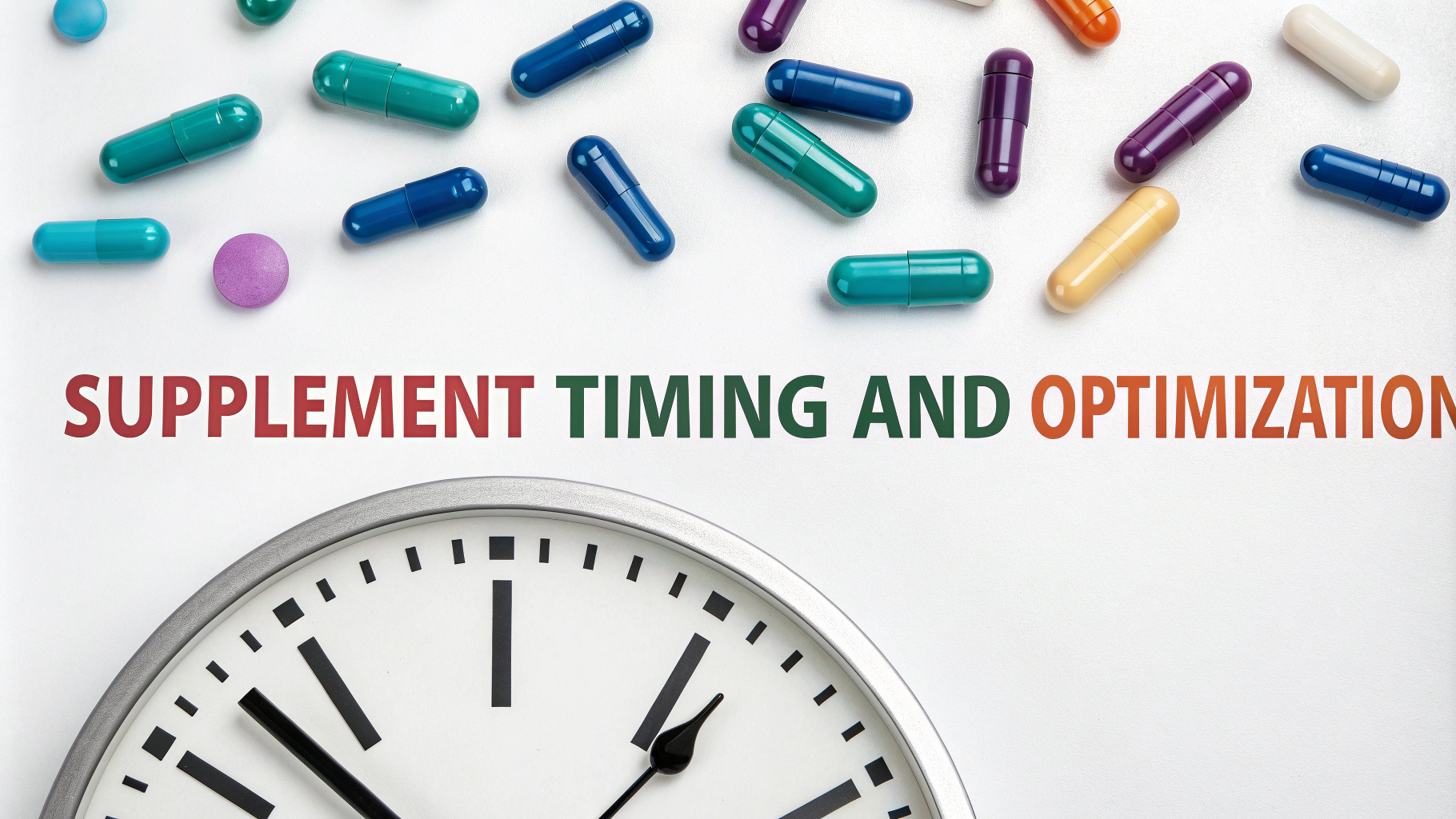Sleep directly impacts physical performance, mental clarity, and overall well-being.
Quick Sleep Optimization Tips
- Set a consistent sleep schedule (same bedtime/wake time)
- Keep bedroom temperature between 60-67°F (15.5-19.4°C)
- Use blackout curtains or sleep mask to block light
- Remove electronic devices from bedroom
- Invest in a quality mattress and pillows
Pre-Sleep Nutrition Guidelines
Certain foods can help promote better sleep quality when consumed 2-3 hours before bedtime:
- Tart cherry juice (natural source of melatonin)
- Bananas (magnesium and potassium)
- Turkey (tryptophan)
- Almonds (magnesium)
- Chamomile tea (natural calming properties)
Foods to Avoid Before Bed
- Caffeine (coffee, tea, chocolate)
- Alcohol
- Spicy foods
- Heavy meals
- Sugary snacks
Bedroom Environment Optimization
| Factor | Optimal Setting |
|---|---|
| Temperature | 60-67°F (15.5-19.4°C) |
| Humidity | 30-50% |
| Noise Level | 30-40 decibels maximum |
| Light | Complete darkness |
Exercise Timing for Better Sleep
Complete moderate to intense workouts at least 3 hours before bedtime.
Light stretching or yoga can be beneficial right before bed.
Recommended Sleep Products
- White noise machines (Recommended: LectroFan Classic)
- Sleep tracking devices (Oura Ring, Whoop)
- Blue light blocking glasses (Swanwick Swannies)
- Weighted blankets (10% of body weight)
Sleep Tracking Metrics
- Total sleep time
- Sleep latency (time to fall asleep)
- Number of awakenings
- Sleep cycles completed
- Heart rate variability
For personalized sleep advice, consult a sleep specialist through the American Academy of Sleep Medicine (Find a Sleep Center).
The National Sleep Foundation helpline (1-888-420-8804) offers free guidance on sleep-related issues.
Sleep Hygiene Routines
Evening Wind-Down Routine
- Start dimming lights 2 hours before bed
- Take a warm bath or shower
- Practice meditation or deep breathing
- Write in a gratitude journal
- Read a physical book (avoid screens)
Morning Wake-Up Routine
- Expose yourself to natural sunlight
- Drink water immediately
- Make your bed
- Light stretching or movement
- Consistent breakfast timing
Managing Sleep Disorders
Common sleep disorders requiring professional attention:
- Sleep apnea
- Insomnia
- Restless leg syndrome
- Narcolepsy
- Night terrors
Conclusion
Quality sleep is fundamental for optimal health and performance. Implementing these evidence-based strategies can significantly improve sleep quality:
- Maintain consistent sleep-wake cycles
- Optimize bedroom environment
- Practice proper sleep nutrition
- Use appropriate sleep technology
- Monitor sleep metrics regularly
Remember that sleep needs vary by individual. Track your sleep patterns and adjust these recommendations to find what works best for you.
FAQs
- What are the optimal hours of sleep needed for adults?
Most adults need 7-9 hours of quality sleep per night, as recommended by the National Sleep Foundation. Individual needs may vary slightly, but consistently sleeping less than 7 hours is associated with various health risks. - How does room temperature affect sleep quality?
The ideal bedroom temperature for optimal sleep is between 60-67°F (15-19°C). This range helps facilitate the natural drop in body temperature that occurs during sleep, promoting better rest. - What role does melatonin play in sleep regulation?
Melatonin is a hormone naturally produced by the pineal gland that regulates the sleep-wake cycle. It’s triggered by darkness and suppressed by light, which is why exposure to blue light before bedtime can disrupt sleep patterns. - How does exercise timing impact sleep quality?
Moderate to vigorous exercise should ideally be completed at least 3-4 hours before bedtime. Morning or early afternoon exercise generally promotes better sleep quality compared to late evening workouts. - Which foods can help improve sleep quality?
Foods rich in tryptophan, magnesium, and complex carbohydrates can promote better sleep. Examples include turkey, bananas, almonds, whole grains, and tart cherries, which naturally contain melatonin. - What is sleep hygiene and why is it important?
Sleep hygiene refers to practices and habits necessary for quality nighttime sleep and full daytime alertness. This includes consistent sleep schedules, relaxing bedtime routines, and creating an optimal sleep environment. - How does caffeine consumption affect sleep?
Caffeine has a half-life of about 5 hours and can affect sleep for up to 12 hours after consumption. It’s recommended to avoid caffeine at least 6 hours before bedtime for optimal sleep quality. - What impact does screen time have on sleep quality?
Blue light from screens suppresses melatonin production and can delay sleep onset. Experts recommend avoiding screens for at least 1-2 hours before bedtime or using blue light filtering devices. - How does alcohol affect sleep patterns?
While alcohol can make falling asleep easier, it disrupts the sleep cycle, particularly REM sleep, leading to poor quality rest. It can also cause more frequent wake-ups during the night due to its diuretic effects. - What are the most effective relaxation techniques for better sleep?
Proven relaxation techniques include deep breathing exercises, progressive muscle relaxation, meditation, and gentle yoga. These methods help reduce stress and prepare the body for sleep.







